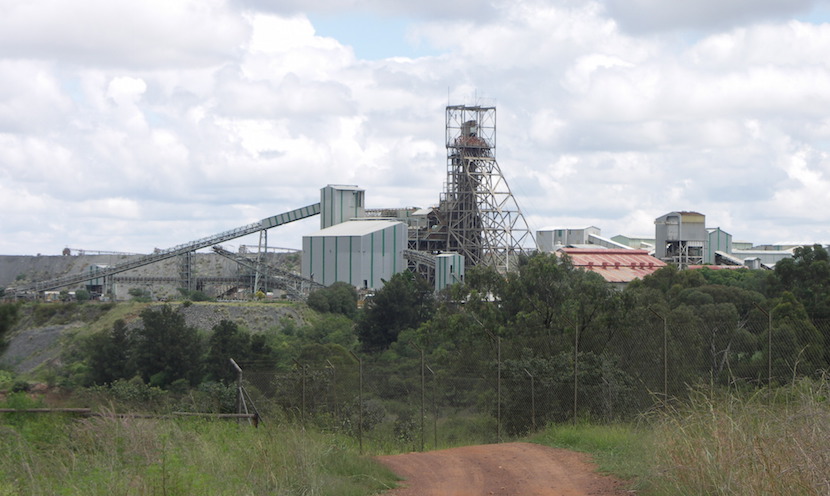By Shawn Hagedorn*

SA desperately needs an epiphany. Similarly patronage-captured, resource-endowed, BRICS partner, Brazil, is also haemorrhaging politically and economically. Brazilian voters and leaders accept the need for bold shifts. Even the Saudi royal family has seen the light.
Extraction focused economies have no choice but to fundamentally re-envisage their prospects and policies. Yet SA’s policy makers, business leaders, and economists fail to accept what is obvious to credit agencies and young career seekers. The country’s perennially inadequate opportunities are not cyclical; they are deeply structural.
As with other resource focused countries, the status quo has suited SA’s elites. What will it take for them to accept that it is reckless to put off fundamental shifts?
Read also: Shawn Hagedorn: Zuma going nowhere slowly. Amnesty a solution?
For the first time in 150 years, SA’s economic prospects are not a function of commodity prices. Yet real election pressures are three years off. In this critical sense, SA’s constitution reinforces the status quo while SA’s economic policies have never needed to change more urgently.
Today’s stressful environment has spawned the appearance of public and private sector leaders joining hands to right the economy. Yet SA’s economic statistics unequivocally demonstrate that the nation’s leaders have never grasped how to create a workable growth and transformation model. The nation’s political and economic dialogues remain deficient for such a monumental task.
SA’s top policy makers gambled that China could continually grow two or three times faster than the rest of the world and just pull SA along. That China’s successes flowed from economic policies antithetical to SA’s should have stirred a sense of foreboding.
Having stagnated in policy induced poverty while its neighbours surged, a generation ago China aced its policy making pivot. It created a virtuous cycle whereby global investors brought knowledge and capital to team with hundreds of millions of hectically impoverished rural peasants who flocked to the cities. They made products ranging from machines to upgrade farmers’ productivity to consumer products for wealthy foreigners.
Read also: Shawn Hagedorn: SA’s new growth path – global integration, regional teamwork
China was able to grow far faster than those countries that had industrialised earlier because it could sell to their deep pocketed consumers. Poor countries whose products target other poor consumers must settle for slow growth.
The East and the West integrated to form a single global economy with the resource endowed nations of Africa, the Middle East and parts of South America sitting on the outside. There is now a race among those that relied on extraction to reinvent themselves. Success paths will vary but their shared characteristics will include: integrating into the global economy; focusing on competitiveness; and specialisation, particularly amid global supply chains.
SA blockages do not relate to a lack of creativity or an inherent inability to compete. Rather the nation’s public policies impede global integration and competitiveness, while the private sector has, according to the IMF and others, remained biased in favour of conglomerates. Meanwhile, competitiveness today is becoming ever more reliant on small companies constructively disrupting their supply chains.
The term, “worse than useless” can be applied quite literally to most of SA’s past and present solution proposals. Responses to a storm at sea that do not result in surviving are worse than useless when they distract from pursuing adequate measures.
Read also: Shawn Hagedorn: Staring at the problem won’t fix income inequality
SA’s polity and economics are both misconceived. Yet, while the risks are high that the economic shortfalls will have compounded dangerously by 2019, if the constitutional safe guards are not compromised, a more effective political dispensation will likely be formed.
The economic challenges are not subject to such self-correcting forces. The business sector cannot integrate into the global economy adequately without public and private policies being reinvented on a par with the Saudi’s crown prince’s recent bold proposals.
It doesn’t help that core factions of SA’s ruling party are engaged in low-intensity political combat with each other. While big business leaders have responded by becoming modestly more engaged – off a very low base – with their public sector counterparts, necessary policy shifts remain a long way off.
The crux of the matter is that SA’s consumers are too over indebted to support adequate growth while the labour force is poorly prepared to compete globally. Meanwhile, the global economy now has a lot less interest in SA’s commodity exports. A credible public-private pact that leads to formidable policy adjustments is urgently required.
The numbers just can’t be made to work without SA’s economy becoming much more focused on adding value to goods and services targeted for wealthy foreign markets. This will require innovative investments – particularly in people. Otherwise the economy will remain generally stagnant thus provoking a political crisis.
That SA should look to Saudi Arabia for inspiration is emblematic of how difficult the situation has become.
- Shawn Hagedorn is an independent strategy adviser. Twitter is @shawnhagedorn


